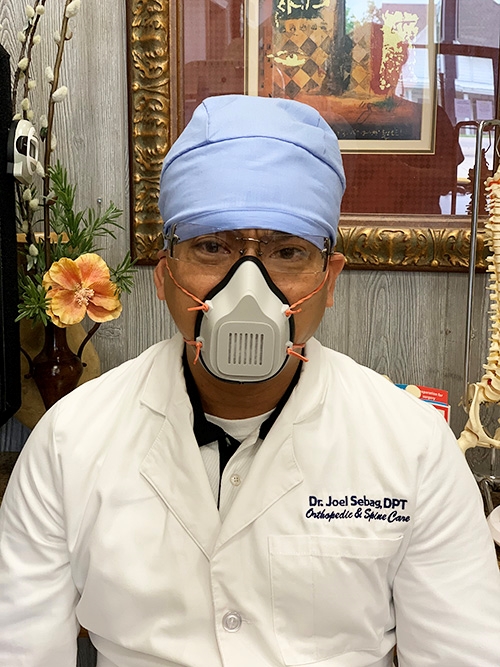
FAYETTEVILLE, Ark. – A design team led by engineering professors Raj Rao, Wenchao Zhou and Zhenghui Sha have used a 3D printer to produce and deliver 50 protective masks to be used by a Northwest Arkansas rehabilitation clinic.
Spine and Sports Rehabilitation provides physical therapy and rehabilitation services at several Northwest Arkansas clinical sites, including Washington Regional Medical Center in Fayetteville and Northwest Medical Center in Springdale. Therapists working for the practice will benefit from protective masks made by 3D printers in laboratories operated by Zhou and Sha.
"We were looking for ways to acquire a mask that is safe to use, easy to
disinfect and reusable," said Dr. Joel Sebag, director of Spine and Sports Rehabilitation. "With the lack of supply for PPE, especially considering that we constantly see patients and with constant exposure to them, having this type of protection for my colleagues and patients is extremely important."
As the COVID-19 pandemic hit, Sebag realized his clinic did not have enough equipment to protect therapists and patients. He discussed the problem with Rao, who has spearheaded or contributed to several university projects aimed at providing protective equipment to hospitals and clinics in Arkansas.
"Upon hearing about the acute shortage of facemasks for Dr. Sebag's staff and the fact that they work closely with patients in numerous nursing and rehab facilities, I felt it was important to help them out," Rao said.
With 3D printers in Zhou and Sha's laboratories, the team produced 50 inexpensive, reusable masks, and Rao has procured supplies to produce 100 more. The researchers were assisted by Lucas Marques, an electrical engineering undergraduate and partner at AMBOTS, an additive manufacturing company founded by Zhou, Marques and Austin Williams; Zachary Hyden, an AMBOTS employee; and Laxmi Poudel, a mechanical engineering doctoral student studying with Sha.
Rao said the team will increase capacity for producing more masks by using printers at the School of Art in the J. William Fulbright College of Arts and Sciences.
Zhou has produced two short videos, one showing how the masks are made and another showing clinicians how to assemble the masks.
Sebag said the masks will be used by Spine and Sports Rehabilitation therapists serving Edgewood Health and Rehabilitation Center in Springdale, Rogers Health and Rehabilitation Center and the Springdale Senior Center, in addition to Washington Regional and Northwest Medical Center.
Rao is professor and head of the Department of Biomedical Engineering. He is also the George M. and Boyce W. Billingsley Endowed Chair in Engineering. Zhou and Sha are assistant professors in the Department of Mechanical Engineering.
About the University of Arkansas: The University of Arkansas provides an internationally competitive education for undergraduate and graduate students in more than 200 academic programs. The university contributes new knowledge, economic development, basic and applied research, and creative activity while also providing service to academic and professional disciplines. The Carnegie Foundation classifies the University of Arkansas among fewer than 3 percent of colleges and universities in America that have the highest level of research activity. U.S. News & World Report ranks the University of Arkansas among its top American public research universities. Founded in 1871, the University of Arkansas comprises 10 colleges and schools and maintains a low student-to-faculty ratio that promotes personal attention and close mentoring.
Topics
Contacts
Raj Rao, professor
Biomedical Engineering
479-575-8610, rajrao@uark.edu
Matt McGowan, science and research communications officer
University Relations
479-575-4246, dmcgowa@uark.edu